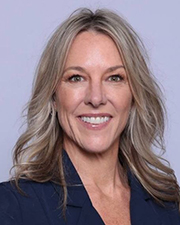
The growing insurance crisis continues to put pressure on community associations, particularly condominiums and housing cooperatives. Across the nation, community associations are facing the real challenges of rising insurance premiums, policy cancellations, increasing deductibles, and diminishing coverage options. The landscape has become more challenging, especially as associations strive to meet the insurance mandates set by Fannie Mae and Freddie Mac.
The cost of insurance, across the board, has skyrocketed in recent years, with many community associations facing significant premium increases – sometimes doubling or tripling over a short span. Natural disasters, inflation, supply chain disruptions, and rising construction costs have contributed to the overall escalation of insurance rates. Additionally, insurance companies have become more cautious, often canceling policies or refusing to renew them, particularly in regions vulnerable to extreme weather events like hurricanes, wildfires, or floods.
For many community associations, the search for affordable and comprehensive coverage has turned into a significant challenge. This results in associations either paying higher premiums or accepting policies with higher deductibles, reduced limits, or exclusions for critical perils. These limitations not only impact the association’s financial health but also place a burden on homeowners, who may face increased assessments or diminished property values as a result.
In addition to the broader insurance market challenges, community associations – particularly condominiums and housing cooperatives – must comply with insurance coverage requirements established by Fannie Mae and Freddie Mac. These government-sponsored entities (GSEs) mandate that associations maintain specific types of coverage to qualify for loans backed by Fannie Mae or Freddie Mac.
However, meeting these requirements has become increasingly difficult as premiums rise, and policy options dwindle. Associations that cannot secure the necessary insurance coverage risk becoming ineligible for financing, creating barriers for potential homebuyers who rely on loans supported by these GSEs. This situation can impact the marketability of units within these associations and further strain the association’s finances.
CAI’s Public Policy Solutions. Recognizing the growing crisis, Community Associations Institute (CAI) is actively advocating for public policy solutions aimed at addressing the insurance challenges facing community associations. CAI is focusing on several key initiatives:
Advocating for Insurance Reforms. CAI is calling for reforms to improve the availability and affordability of insurance for community associations. This includes working with lawmakers to develop policies that would stabilize insurance markets and provide relief for associations in high-risk areas.
Exploring Risk Mitigation Programs. CAI supports the development of risk mitigation programs that could incentivize community associations to invest in infrastructure improvements that reduce their exposure to natural disasters and other risks. By reducing the overall risk profile of these associations, insurance companies may be more willing to offer affordable and comprehensive coverage.
Engaging with Fannie Mae and Freddie Mac. CAI is working directly with Fannie Mae and Freddie Mac to review and potentially revise their insurance coverage requirements. The goal is to strike a balance between maintaining necessary protections for homeowners and allowing flexibility in the types of policies associations can secure. This engagement aims to ensure that the GSEs’ requirements do not unintentionally exclude associations from accessing critical financing options.
Promoting Access to Fair Plans. State Fair Plans, also known as “residual market insurance plans,” are designed to provide insurance to homeowners and property owners who are unable to obtain coverage in the standard private insurance market due to high risk, such as living in areas prone to hurricanes, wildfires, or other disasters. These plans are usually created by state governments but are funded by assessments on private insurance companies operating within the state. The state may regulate these plans and oversee their operations, but the actual insurance policies are often issued by a combination of private insurers under state-mandated guidelines.
CAI is working with the state legislative action committees to allow community associations to have access to Fair Plans for at least part of their insurance needs.
The insurance crisis is one of the most pressing issues facing community associations. CAI is committed to addressing these challenges through public policy efforts and by working closely with industry stakeholders to create sustainable insurance solutions for the future.
Dawn Bauman, CAE, is CAI’s senior vice president of government and public affairs and the executive director of the Foundation for Community Association Research, Wellesley, Mass.
 (1).png)







